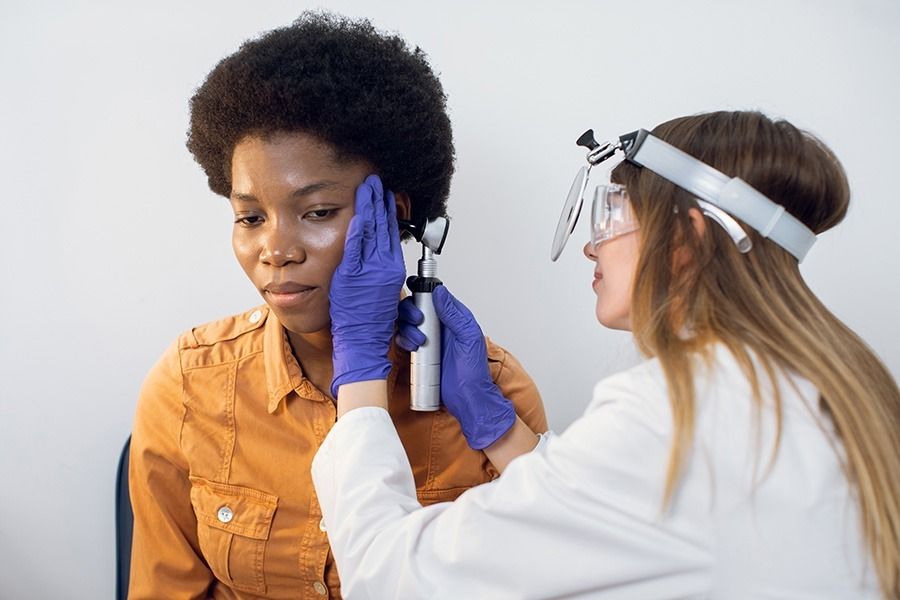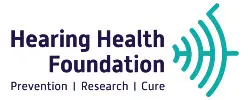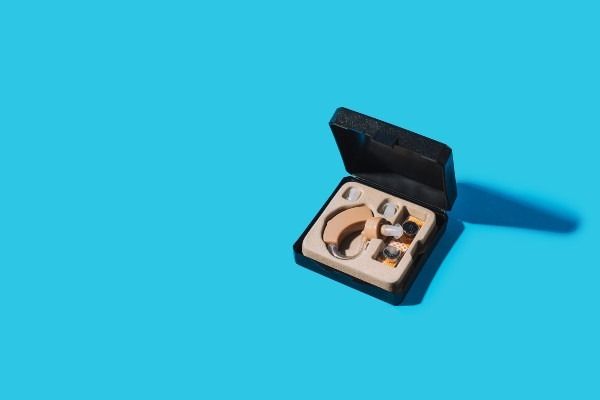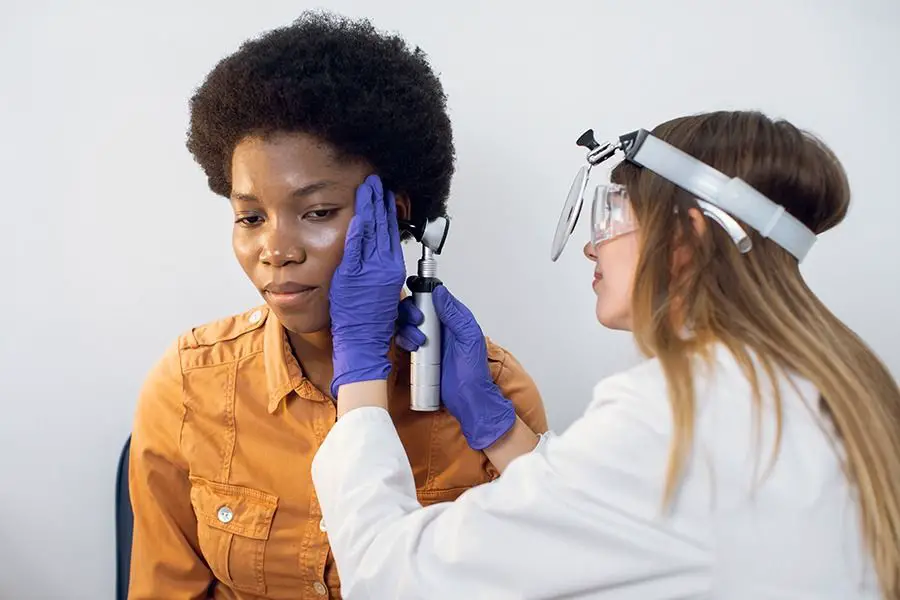Introduction
The path to understanding and treating conductive hearing loss is a complex one, layered with innovative research, clinical trials, and evolving technologies. With each passing day, scientists are breaking new ground, forging a path towards a future where conductive hearing loss is no longer a barrier to the quality of life.
In this blog post, we aim to guide you through the landscape of conductive hearing loss research, giving you an in-depth understanding of the latest developments. Our focus will be on explaining the intricate processes behind these advancements, elucidating the roles of clinical trials, new research approaches, genetic studies, and emerging non-invasive techniques.
With each section, we seek to demystify the science behind conductive hearing loss research and to highlight the dedication and commitment of the research community towards finding effective solutions. Together, let’s step into the fascinating world of scientific exploration and gain a greater understanding of the future possibilities for individuals living with conductive hearing loss.
Our journey will shed light on the resilience, dedication, and innovative spirit of the scientific community. It will elucidate how their efforts are transforming the landscape of conductive hearing loss, one breakthrough at a time.
Participating in Conductive Hearing Loss Clinical Trials What to Expect
Clinical trials are an integral part of medical research and play a pivotal role in the development of new treatments for conductive hearing loss. They offer patients the opportunity to contribute to medical progress while possibly benefiting from the latest therapeutic approaches. But what should one expect when participating in a clinical trial?
Firstly, it’s important to understand that every clinical trial follows a strict protocol, designed to ensure the safety and efficacy of the treatment being tested. Participants are thoroughly briefed on the study’s purpose, the proposed treatment, and the potential risks and benefits involved. Each step of the process is overseen by medical professionals, and participants have the right to withdraw at any point.
Exploring the Latest Conductive Hearing Loss Clinical Trials
The landscape of clinical trials for conductive hearing loss is rich with innovation. Researchers are exploring various therapeutic approaches, from drugs and surgery to novel interventions like gene therapy and stem cell treatments.
One notable clinical trial is the ongoing study by Otonomy Inc. The company is investigating the efficacy of OTO-313, a sustained-exposure formulation of gacyclidine (an NMDA receptor antagonist) for the treatment of tinnitus, a condition often associated with conductive hearing loss. The study is currently in Phase 2 and shows promising results.
Research Breakthroughs Novel Approaches to Conductive Hearing Loss
The sphere of research in conductive hearing loss is vast and dynamic. A noteworthy recent breakthrough is the use of stem cells to regenerate damaged ear cells. This innovative approach holds potential to restore hearing in individuals with conductive hearing loss.
Another significant advancement is in the field of bone conduction implants. These implants bypass the damaged parts of the ear, delivering sound directly to the inner ear. The research on improving these implants and making them more user-friendly and efficient is ongoing, further enriching the options available to patients with conductive hearing loss.
Audien BTE (Behind the Ear) Rechargeable OTC Hearing Aid
Experience Unparalleled Sound Quality with the New Audien BTE (Behind the Ear) hearing amplifier. Elevate your hearing with the clearest, highest-quality sound available in an over-the-counter hearing assistance device. Designed by Audien, renowned for their sleek and comfortable hearing devices, the BTE model ensures exceptional hearing performance. It features advanced digital technology, including four environmental modes, background noise reduction, feedback cancellation, and two directional microphones per unit (four in total).
Say Goodbye to Missed Conversations and Hello to Superior Sound. Audien hearing devices excel at amplifying speech while reducing background noise, allowing you to effortlessly engage in conversations with friends and family. Experience the consistent, long-lasting, and sharp sound quality without any whistling or feedback issues. With customizable volume control, you can easily adjust the amplification to meet your individual needs. These devices are perfect for enhancing high tones and improving TV dialogue clarity.
Rechargeable for Uninterrupted Use. The Audien BTE hearing amplifiers are 100% rechargeable, offering convenience and freedom from the hassle of tiny button batteries. With wireless magnetic charging technology, you can enjoy a 20-hour battery life with just a quick two-hour charging time. The included charging case provides up to three full charges, giving you a total of 60 hours of amplified sound. Simply place the devices in the case, and they will wirelessly charge, ensuring you’re always ready to hear your best. Experience the ease and reliability of Audien sound amplifiers, ideal for individuals with dexterity issues or those tired of constantly purchasing and replacing batteries.
Groundbreaking Studies on the Genetic Basis of Conductive Hearing Loss
The field of genetics is providing fascinating insights into the underlying causes of conductive hearing loss. Unraveling the genetic basis of the condition can pave the way for personalized treatment strategies and preventive interventions.
Scientists have identified several genes linked to conductive hearing loss, such as the TBX1 gene associated with DiGeorge syndrome, a disorder often accompanied by conductive hearing loss. Understanding the role of such genes in hearing loss can provide valuable targets for future therapeutic interventions.
QUIZ - CURRENT RESEARCH ON HEARING LOSS
Understanding the Scientific Process Behind Conductive Hearing Loss Research
Conductive hearing loss research is a systematic process that often starts with identifying a research question or a hypothesis. Scientists then conduct preliminary studies, usually on cell cultures or animal models, to gather initial insights. If these studies yield promising results, the research progresses to human clinical trials.
Clinical trials for conductive hearing loss follow a series of stages, each with specific objectives and procedures. They start with a small group of participants to evaluate safety (Phase 1), then move to a larger group to assess effectiveness and further evaluate safety (Phase 2), and finally to large groups to confirm effectiveness, monitor side effects, and compare with commonly used treatments (Phase 3). If a treatment proves safe and effective, it may receive approval for clinical use.
Emerging Non-Invasive Techniques for Conductive Hearing Loss Treatment
The evolution of non-invasive techniques for conductive hearing loss treatment has opened up a new chapter in patient care. These techniques minimize the need for surgical intervention, improving patient comfort and convenience.
One emerging technique is transcranial magnetic stimulation (TMS), which uses magnetic fields to stimulate nerve cells in the brain. Preliminary studies suggest that TMS could potentially help manage tinnitus, a common symptom associated with conductive hearing loss.

How to Care for someone with Conductive Hearing Loss
Conductive hearing loss is a type of hearing loss that affects the outer or middle ear. In this blog post, we will cover some of the topics that you may want to know more about when caring for someone with conductive hearing loss.
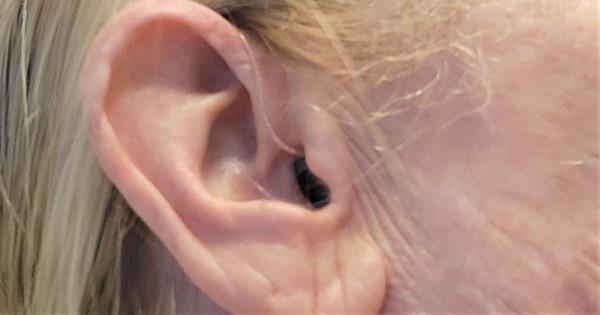
Journey into the World of Sensorineural Hearing Loss: A Compassionate Guide
90 / 100 Introduction Navigating the world of sensorineural hearing loss can be a complex journey, filled with scientific jargon, medical terminologies, and a deluge

